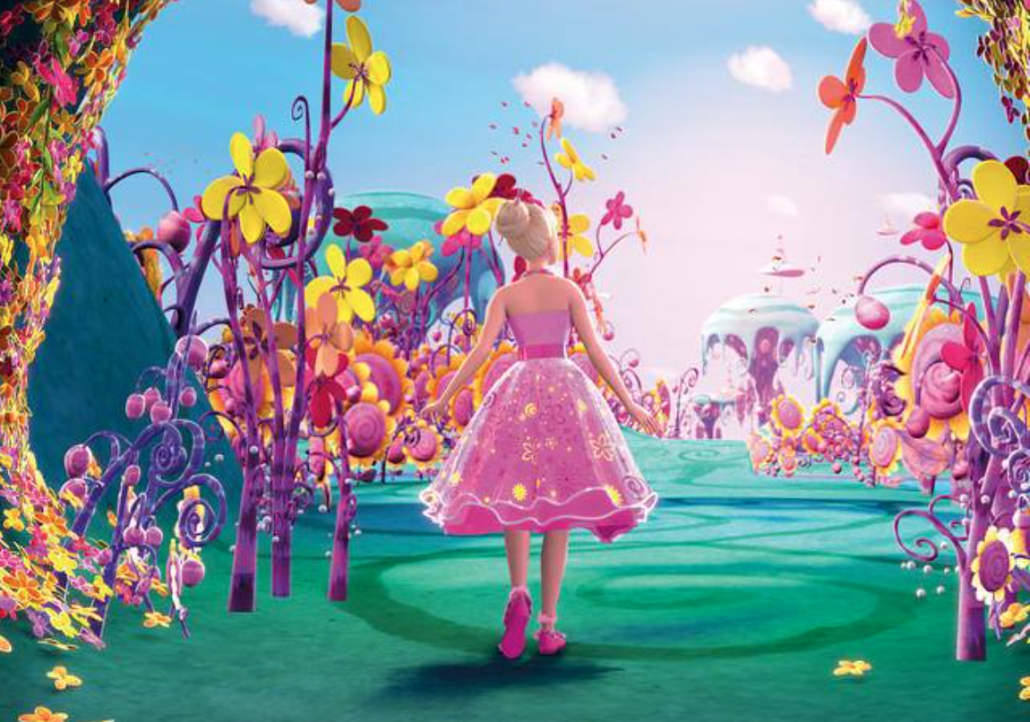Animated: 2000s Barbie animated movies demand a comeback

A live-action Barbie movie starring Margot Robbie as Barbie and Ryan Gosling as Ken is coming out in 2023. Although I’m excited about the new adaptation, seeing the news brought me back to my childhood, specifically the Barbie animated films of the 2000s. For me, those films possess the Barbie I care about the most: the nostalgic Barbie of fairytales.
After all, how many sick days did I spend watching “Barbie Mariposa and her Butterfly Fairy Friends” at home, marveling at pretty fairy dresses with a pot of chicken soup? How often did I dress up as Barbie in “Barbie of Swan Lake” or “Barbie in the Twelve Dancing Princesses,” wanting to be Barbie herself?
The old Barbie films occupy a particular space in the cultural consciousness, especially for those who, like me, grew up watching them. Go on YouTube and you’ll find video compilations of the iconic villain Preminger from “Barbie as the Princess and the Pauper,” or the best sassy moments from “Barbie and the Magic of Pegasus.”
Even as the animation of the Barbie films has drastically improved over the years, the transition to more contemporary settings has meant that we no longer get the fairytale that inspired the original movies. Mattel, the toy company that created Barbie and her associated entertainment, has shown its ability to adapt with its new takes on popular originals (see: “Barbie: The Princess & the Popstar”). Yet, I’d argue that the Barbie movies of the aughts captured a certain experience of growing up that the current Barbie movies don’t, or at least not as effectively.
When it comes to feeling this way, I’m not alone. According to a Buzzfeed article by Sara Thompson, those Barbie movies, such as “Barbie in the 12 Dancing Princesses” and the “Barbie: Fairytopia” series, constitute much of the media that represents “2000s girl culture.” It’s evidence that, for many, the old Barbie animated films have contributed to some sense of identity formation. (Even if that’s not true for you, they do serve as a time capsule for the past.)
In light of that, fans met the changes made to more recent Barbie movies with anger and disappointment. In a lukewarm IMDb review for the 2013 film “Barbie Mariposa and The Fairy Princess,” user @ninjathesecond writes, “For some reason 2 years ago Mattel changed and created a modernised Barbie and it became all about laptops, the internet, web blogs etc.” The user goes on to comment that the company has chosen to “shove” in whatever’s popular and that it would be more beneficial to emphasize “old school Barbie.”
A Change.org petition started by Sidra Khan titled “Bring Barbie Movies Back To Their Original Standards” has reached nearly 1,000 signatures so far and states that “the more recent movies have lost their charm” and that the plots of these movies have become “basic.”
“We need the old Barbie back,” the petition rightfully concludes.
Considering the fact that Barbie’s intended as a role model for young girls, the original Barbie movies did have a substantial impact in terms of how they redefined femininity. In an article for Rappler, Mikaela de Castro dissects individual Barbie movies for their “empowering” messages.
De Castro analyzes how “Barbie as Rapunzel” shows Barbie breaking free from her oppressor and how “Barbie as the Island Princess” embraces what it means to be different. It’s obvious that, as de Castro writes, inserting Barbie into previously patriarchal fantasy settings allowed Barbie to rebel against those norms and become incredibly iconic.
I echo others’ thoughts in wishing that, instead of doing modern stories, Barbie should go back to her classic fairytale roots. Even as we appreciate the merits of old Barbie, though, it has to be said that I’m not advocating for a return to the old style of animation. Technology has progressed, and I’m sure most people would rather watch a nicely fleshed-out Barbie than the comparatively stiff block from the past.
It’s worth noting that sometimes the allure of the old Barbie movies is derived entirely from nostalgia. For those who grew up during the 2000s, the Barbie movies may well have been a fundamental part of our childhoods that we can’t possibly recreate now as we’re older.
Yet the Barbie films of old resonated with many as they showed us a new kind of “happily ever after:” staying true to tradition while still having agency over the narrative. “Barbie as the Princess and the Pauper” had the most memorable, truly Broadway-quality soundtrack of all time, and likewise, I still remember much of the music of the past films, even now. There’s a lot of gold to be found in mining beloved stories and retelling them in inspired ways that don’t necessarily rely on what’s hot at the moment.
As the evolution of the Barbie movies shows, a film doesn’t necessarily need microphones to amplify its magic. Nostalgia can have its own stage.
Valerie Wu is a junior writing about animation and digital arts from a contemporary perspective. Her column “Animated” runs every other Friday.

